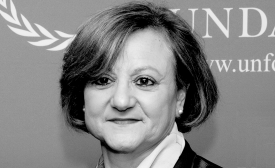european union
Poland backs Vietnam’s strengthening of ties with the European Union (EU) and will push for the signing of the EU-Vietnam free trade agreement. [...] Both sides agreed to continue the exchange of cultural-art delegations along with holding film weeks and photo exhibitions, and partnering up in restoration and upgrade of cultural heritage sites, contributing to promoting people-to-people diplomacy
Negotiations need to be proactive, intensive and include concrete, partial and measureable propositions in two or three months maximum. “Large sets of measures” shouldn’t be negotiated because they will only further root the positions of both parties. Transparency is a necessary condition for drawing concrete agreements which are fulfilled with a public declaration made by both parties about what they agree on and what they are forced to do, and when.
A total of 20 young leaders from China and Austria have engaged in close discussions and exchanges in a four-day agenda from Nov. 30 to Dec. 3, in Beijing, Guangzhou and Shenzhen to enhance mutual understanding and friendship between the two countries. [...] Revolving around topics including cultural inheritance and China-EU interconnectivity, delegates from the two sides have engaged in lively discussions.
Today the European Commission is announcing a further increase of the share of its humanitarian aid budget to lead the way in supporting education projects in emergency situations around the world. The increase from 4% in 2016 to 6% in 2017 of the humanitarian aid budget, puts the Commission well ahead of the global average.

Read CPD's interview with the UN Under-Secretary-General for Communications and Public Information
Nowadays, the crucial question is based on what we expect from the EaP program in terms of implementation of its possible action framework in conjunction with partner countries. Does it fail or thrive in future expectancy?! [...] the arduous processes of the world order compel the EU to change its basic principles, the way of strategy, positions as well as instruments by taking into account the different stances of partner countries.
May’s focus was on the need to ensure that the benefits of "liberalism and globalisation" are more evenly distributed. For her, the EU referendum and the US presidential election should be read as wake-up call. Important as this analysis may be for electoral politics, it does not set out a clear road map for the UK’s future foreign policy.







